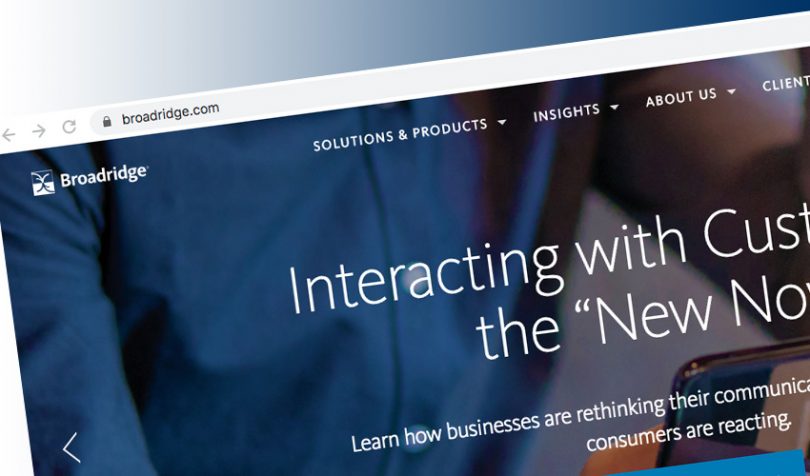Earlier this week, New York startup LiquidX announced a multi-year funding from Broadridge Financial, which becomes its biggest investor. LiquidX is a trade finance platform that launched a digital asset blockchain solution InBlock in August. As a company, it says it has processed more than $100 billion in “cash management activity” since inception.
LiquidX has two main solutions. The primary one is LiquidX360, which targets corporate treasurers to offer accounts receivable and supply chain finance combined with trade credit insurance. It doesn’t use blockchain. The other is InBlock for digitizing invoices and purchase orders. What’s different from some other trade finance platforms is the focus is very much on the corporate treasurer, although banks obviously participate.
In terms of the Broadridge announcement, the financial technology company with a market capitalization of more than $16 billion, also provides operational services to LiquidX. This includes payment processing, account reconciliation, back-up services and global operational scalability. The relationship between the two companies has existed for some time.
“As a Broadridge-backed company, LiquidX will be able to leverage Broadridge’s size, scalability and resiliency and our continued investment in innovation to better help its customers with its advanced technology offerings like InBlock and LiquidX 360,” said Chris Perry, President of Broadridge.
Broadridge’s offerings primarily focus on capital markets, so at one level this appears to be a departure. But institutional investors are active in the space and there is an increasing number of marketplaces for trade finance assets, and LiquidX plans to launch one as well.
Broadridge has several blockchain interests. It’s an investor in enterprise blockchain firm Digital Asset and uses its DAML smart contract language. It also acquired the Northern Trust private equity blockchain and has a proxy voting solution.
The LiquidX blockchain offering
Meanwhile, InBlock is the new blockchain digitization solution that LiquidX describes as a ‘digital asset servicing platform’. It essentially digitizes purchase orders and invoices. There’s a shared module where the supplier and customer can both see the invoices, approve them and manage queries. It includes a reconciliation solution that automatically matches bank receipts to invoices and because the data is shared, it improves cash forecasting, which is also provided.
When it was announced, LiquidX’s Kristen Michaud outlined the benefit as including “digitally recording the actions taken against the asset and carrying these into the cash forecasting model.”






